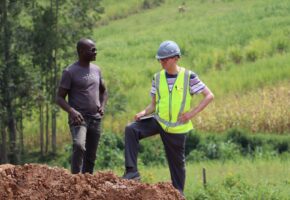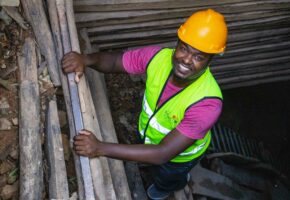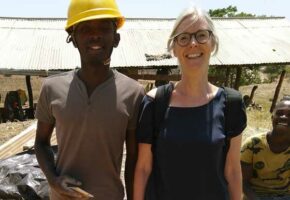Introducing our Trustees – Monique Lempers
Hi there, my name is Monique Lempers, and I love to connect different worlds to make an impact in the field of sustainability. I get inspired by working with positive, energetic people who are motivated by more than financial gain and driven to find creative solutions to systemic failures. In my role as Impact Innovation Director at Fairphone I lead the team responsible for ensuring Fairphone’s Thought Leadership, ensuring that driving impact towards a fairer industry is held high and remains embedded strongly in the company. At Fairphone we aim to inspire the industry to act more responsibly, by bringing a sustainable phone to the market with new solutions that drive positive social and environmental impact.
My working experience in the field of impact management and sustainability spans more than 20 years. Over the last five years I have contributed to scaling Fairphone through MT membership and in the roles of Commercial and Value Chain director. Before joining Fairphone, in the Sustainable Trade Initiative (IDH) I was leading pre-competitive transformation programs in the Electronics, Mining and Textile supply chains with key industry players and NGOs. These programs focused on building sustainable workforces by improving employee representation and dialogue with management, higher environmental performance in the supply chain and transitioning towards more sustainable mining. Prior to that, I worked as a senior advisor in sustainability and ethical sourcing at PwC and researcher/project manager in the NGO human rights field.
When it comes to making the supply chain of a smartphone fairer, I have learnt that it is crucial to build industry partnerships along that supply chain in order to make systemic changes possible. Most of the issues we are tackling are incredibly complex and require serious human and financial resources to address them. Only with a coalition of willing partners, with the power of the market behind them, and with some real ‘movers and shakers’ willing to take some risks, can we tackle these complex issues and bring innovative and sustainable solutions that drive true systematic change.
The forming of these coalitions doesn’t happen overnight. Convening (often competing) industry parties around a pre-competitive agenda and gaining serious commitment of the companies behind the (often highly driven) individuals is not an easy task. But it is a crucial role and one that The Impact Facility is committed to taking on. It was exactly this need for bringing together the right actors along the supply chain of the minerals and metals used in many of our consumer goods, that brought us to co-found The Impact Facility. The aim is to bring economic and environmental empowerment to artisanal and small-scale mining communities based at the very start of our supply chain.
The founding of The Impact Facility is, in my eyes, very timely. With the transition towards a greener and smarter, more tech-led economy, for the coming decades we expect the demand and supply of certain mined materials to grow. And although there is nowadays a ( somewhat convenient) focus on sourcing ‘100%’ recycled materials as the key sustainable strategy ‘towards a circular economy’ for many companies, we know that there will not be enough recycled material available for years to come (if ever) to cover for the increasing demand of materials like cobalt. An industry focus on a fair transition towards the circular economy is therefore crucial, not overlooking that we are still sourcing from artisanal and small-scale mines where conditions are poor but on which many families still depend on.
A great example of a coalition tackling exactly this issue and housed under The Impact Facility is the recently launched Fair Cobalt Alliance (FCA). This alliance is set up as an action platform that brings together major industry players that sees ASM cobalt as a potential driver for local development – if done sustainably. The FCA focuses on professionalisation of ASM and addresses some of the most pressing issues in the artisanal cobalt mining sector, from child labor to hazardous working conditions. We are also looking at deep-rooted problems which are not the responsibility of one sector alone or any individual company, and a system-wide change to address these problems.
The FCA has all the potential to take on this major task, as it represents major industry players including the biggest cobalt supplier and traders on the world market, Huayou and Glencore, as well as progressive brands such as Tesla, Signify, Sono Motors and Fairphone. At Fairphone, we look forward to seeing the FCA grow in impact and scale under the umbrella of The Impact Facility. Besides that, we have already started to work on the other materials that are on our Fair Material Roadmap and foresee more change agents for The Impact Facility to convene. I hope to encounter you there some day!






